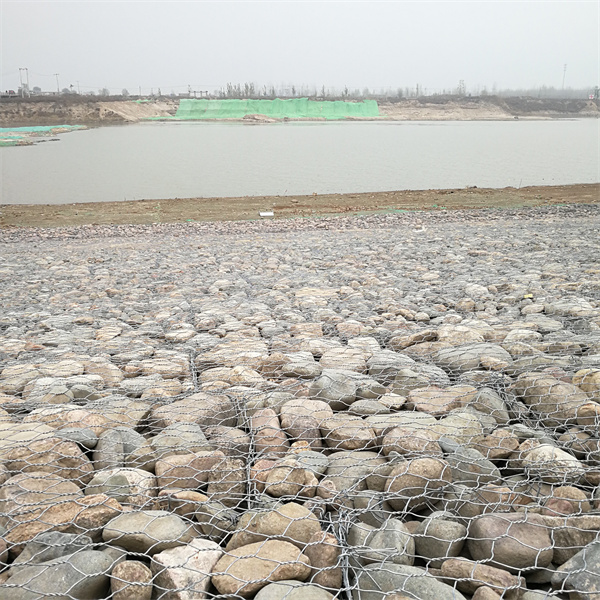Դկտ . 23, 2024 08:44 Back to list
best stone for gabion walls
The Best Stone for Gabion Walls A Comprehensive Guide
Gabion walls are a popular choice for landscaping and civil engineering due to their versatility, strength, and aesthetic appeal. These structures are typically made by filling wire mesh cages with stones, which not only provides structural stability but also allows for drainage and natural filtration of water. Selecting the right type of stone is crucial for the performance of gabion walls. This article explores the best stones for gabion walls, considering factors such as durability, aesthetic qualities, availability, and cost.
Durability
When choosing stones for gabion walls, durability is the primary consideration. Stones should be able to withstand weather fluctuations, erosion, and physical stress. The ideal stone should be hard, dense, and resistant to breakdown under heavy loads or harsh environmental conditions.
1. Granite Granite is one of the most durable options available. Known for its toughness, it resists weathering and erosion, making it an excellent choice for both decorative and functional gabion walls. Its natural beauty, with a range of colors from gray to pink, adds visual appeal to the project.
2. Limestone Limestone is another common choice, specifically when considering a balance between strength and cost. Although less durable than granite, it offers good compressive strength and a unique aesthetic with its varied textures. It is also widely available, making it a cost-effective option.
3. Basalt Basalt is a dense volcanic rock known for its strength and durability. It has a dark color, which can complement modern designs. Additionally, basalt's natural resistance to moisture makes it suitable for areas where water drainage is important.
Aesthetic Qualities
While durability is a primary concern, the visual appeal of stone is also significant, especially for landscaping projects. A well-designed gabion wall can enhance the beauty of a garden or outdoor area.
1. River Rock Using rounded river stones gives your gabion wall a softer, more natural look. These stones, polished by flowing water, come in various sizes and colors. While not as dense as granite or basalt, river rock can still provide sufficient stability in many applications.
2. Fieldstone Fieldstone reflects a rustic feel, as these stones are typically used in their natural state, with irregular shapes and sizes. They can blend beautifully with the surrounding landscape and create an organic appearance.
best stone for gabion walls

Availability
Availability is another critical factor in selecting stones for gabion walls
. Local sourcing of materials can significantly reduce transportation costs and environmental impact.1. Local Stone Quarries Utilizing stone types native to your region can save on trucking costs and bolster local economies. Check with local quarries to see what types of robust and attractive stone are available.
2. Recycled Materials Another sustainable option is to use recycled aggregate or stones from other construction projects. This not only cuts down on new resource extraction but also provides a unique look to your gabion wall depending on the materials used.
Cost
The cost of stones varies significantly based on the type, availability, and region. Granite tends to be on the higher end of the price spectrum due to its demand and durability, while limestone and river rock may be more budget-friendly.
1. Granite As one of the most prized stones, it can be costly, but its long lifespan may justify the expense.
2. Limestone Often more affordable, limestone provides a good mix of strength and value, making it a standard choice for many gabion wall projects.
3. River Rock and Fieldstone These types of stones can vary in price, usually depending on their source and processing. They offer aesthetic charm without breaking the bank.
Conclusion
Selecting the best stone for gabion walls involves considering a variety of factors, including durability, aesthetic appeal, availability, and cost. Granite, limestone, and basalt are top contenders based on their strength, while river rock and fieldstone provide unique visual qualities. Ultimately, the choice will depend on the specific requirements of your project, local availability, and budget constraints. With the right stone, your gabion wall can be not only a functional structure but also an attractive addition to your landscape.
-
HESCO Gabion Baskets for Coastal Erosion Prevention
NewsAug.22,2025
-
Longevity and Durability of River Rock Gabion Walls
NewsAug.22,2025
-
How to Integrate Gabion 3D Walls in Urban Planning
NewsAug.22,2025
-
Reno Mattress Gabion Applications in Civil Engineering
NewsAug.22,2025
-
How to Install Wire Mesh for Gabion Baskets Properly
NewsAug.22,2025
-
Best Materials for Filling a Chain Link Gabion
NewsAug.22,2025
-
Wire Mesh Thickness Impact on Gabion Wall Load Bearing
NewsAug.12,2025






